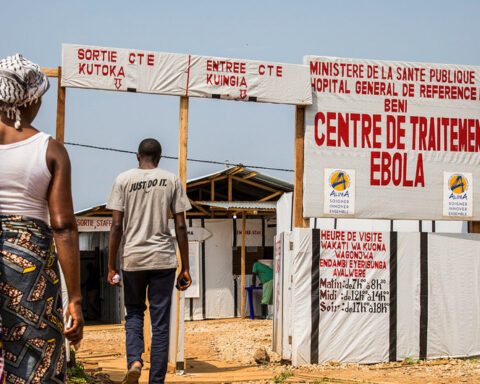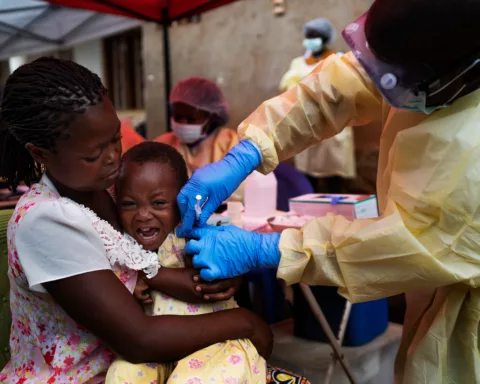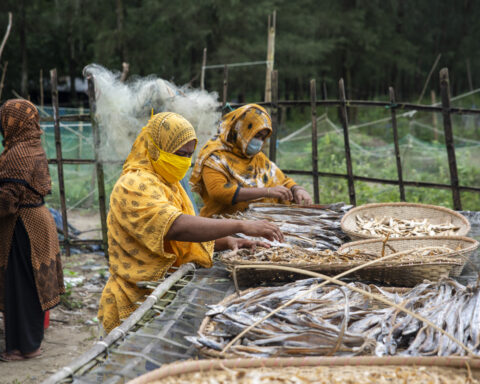Geneva / Conakry – On 14 February, the Ministry of Health of Guinea declared an EVD cluster in the sub-prefecture of Gouécké, in the southeastern region of N’Zérékoré. This is the first time EVD has been reported in the country since the 2014—2016 outbreak, which spread across land borders into Sierra Leone and Liberia claiming more than 11,300 lives.
Within days, IOM deployed the necessary resources to set up five health screening points around Gouécké, and on the borders with Côte d’Ivoire and Liberia. In addition, three Public Health Emergency Operations Centers were activated with IOM’s support to facilitate coordination and intensive contact tracing efforts.
“Since 2014, IOM has had a strong working relationship with national and local health authorities, communities, and other key stakeholders,” said Maximilian Diaz, IOM Guinea´s Officer in Charge.
“We were able to mobilize our teams immediately and help activate strong disease surveillance measures around the epicentre, but much more is needed to make sure the outbreak is contained as fast as possible.”
IOM’s response strategy will focus on the Gouécké sub-prefecture, the current epicentre, and the surrounding health districts of the N’Zérékoré region which borders Côte d’Ivoire, Liberia and Sierra Leone.
The Organization carried out preparedness activities in those countries following the 2014 EVD outbreak and is now planning to scale up efforts, including working with public authorities and communities to enhance surveillance at border areas, outreach to inform and engage communities, deployment of additional handwashing stations, and more.
IOM’s public health interventions use analysis of human mobility within and across international borders to inform targeted preparedness and response measures to infectious disease outbreaks.
The Organization’s new plan, in line with the Government’s priorities laid out in the National EVD Response Plan, aims to prevent further EVD transmission by:
- strengthening coordination and emergency management capacities at all levels;
- carrying out disease surveillance activities;
- implementing infection prevention and control measures, for example by setting up handwashing stations;
- and mapping local mobility trends and dynamics to inform decision-making.
Overall, some 4.5 million people are targeted to benefit from these activities.
As of 1 March, 4 probable and 13 confirmed cases have been identified, eight of whom have died. As IOM-supported surveillance activities are already underway, hundreds of contacts have been identified, the majority of which are in N’Zérékoré, and some others in the Conakry, Dubreka and Coyah areas.
Despite some movement restrictions across official border crossings due to the ongoing COVID-19 pandemic, a significant number of cross-border movements continue to take place, which pose a risk for international EVD spread.
“We have witnessed the devastation that delayed action on public health emergencies can do to a community and societies at large,” stressed Diaz. “We must stand by the people of Guinea, and we must act fast.”






